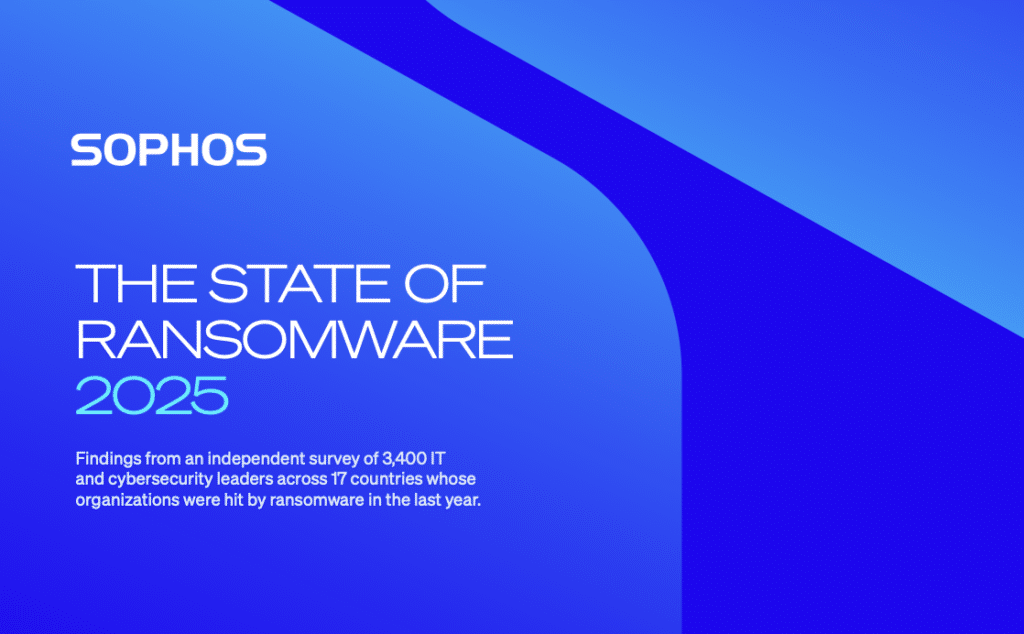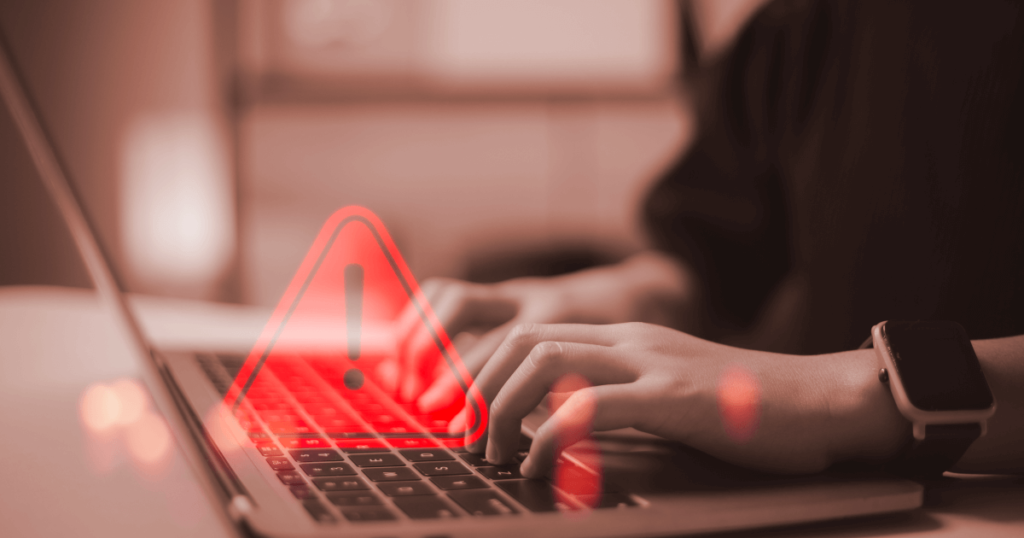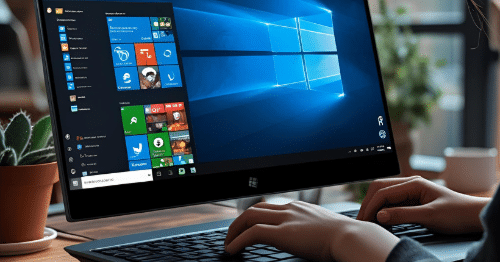UK businesses cannot continue risking reputation with shoddy security, says Espria

Sophos’ 2024 Threat Report recently highlighted ransomware as the biggest existential cyber threat to small businesses. While cyberattacks on large companies and government agencies may receive more news coverage, Sophos reported that SMB’s are generally more vulnerable to cybercriminals and suffer more proportionally from the results of a breach.
Cyberattack recovery costs can be detrimental to businesses still establishing themselves, even forcing some of them to close. Veeam previously reported that 85% of ransomware attacks targeted small businesses, most of which did not have an incident response plan that had been tested within the previous six months, thus forcing them to pay ransoms to regain data. The high cost of recovering data and salvaging reputations means up to 60% of small businesses fail after a successful cyberattack.
Dave Adamson, CTO at Espria believes the relationship between cybersecurity and business success is more critical than ever before, and the inability to safeguard customer data from threats can have a negative impact on finances as well as a brand trustworthiness.
“Trust forms the foundation of any business-customer relationship. Customers need to feel confident their data is secure; however, cybersecurity risks are becoming more systematic and severe. The inability to protect customer data from cyberattacks or breaches can dismantle this trust. Although the short-term impacts of a cyberattack, such as financial costs, are quite severe, the long-term knock-on effects on brand reputation can be more harmful and potentially lead to a loss of business revenue.”
“Earning and retaining customer trust can be effortlessly hindered if IT leaders are not sufficiently prepared for a cybersecurity attack. Many smaller businesses forgo a ransomware response plan or affordable backup plan as it may not appear operationally worth the investment, but when compared with how a data breach can entirely damage their business reputation, it has become a necessity to combat modern cybercriminal activity.
The Department for Science, Innovation and Technology estimates that around 22% (312,000) of UK businesses were hit with a cyberattack last year, primarily via phishing leads. Larger businesses were the biggest victims of cybercrime attempts and were also found to be the primary targets of other types of attacks, such as unauthorised access attempts, malware and ransomware. But often, it’s SMBs that suffer greater consequences.
“Unlike larger enterprises, small businesses often lack extensive security resources, making them particularly vulnerable to crippling attacks. These usually run with a focus on rapid growth and success, leaving security behind for the promise of profit. However, in today’s data security environment and ease of access, cybersecurity must be addressed and updated weekly.
“Some SMEs also mistakenly believe they’re too small to be a target and don’t prepare against cyber threats. These incidents can cripple business operations and perpetuate a bad reputation that sticks in customers’ minds. While large businesses might be able to absorb the loss of customers and costs caused by a cyberattack, limited resources mean that recovering from setbacks can be more extensive and complicated.
“Implementing comprehensive and proactive security measures is necessary to ensure that one attack doesn’t eliminate their operations and customer trust. By proactively protecting your business, IT leaders can confidently demonstrate their commitment to safeguarding data and build a reputation as a trustworthy and reliable organisation.”
“Investing in IT support partners can allow businesses to educate staff about the best cyber practices and provide awareness training to build an impenetrable human firewall. Partners are the most cost-effective way for SMEs to have high-quality talent available on a budget, but for business leaders, ensuring that a backup plan is in place can be the difference between surviving an attack or being crippled indefinitely.”
You may be interested in
The 2025 State of Ransomware: Key Insights on Attacks, Costs, and Recovery
Ransomware continues to evolve — and so must our defenses. The State of Ransomware 2025 report from Sophos presents one of the most comprehensive views yet into how organisations around the world are being impacted by ransomware attacks. Based on an independent survey of 3,400 IT and cybersecurity leaders across 17 countries, the report explores how attacks are evolving, the operational weaknesses adversaries exploit, and the human and financial tolls that follow. Whether you’re building a cybersecurity strategy or assessing risk, this year’s findings offer crucial, real-world insights to guide your response. Key Findings from…
Outgrowing your MSP; businesses need a provider that scales with their growth
To stay competitive, business leaders must align with MSPs that deliver strategic value, drive innovation, and support to scale. Now firmly into 2025, it’s becoming clear what the year has in store for the IT landscape. For SMBs, the message is clear: business growth must be matched with smarter, more scalable managed services. The demand for cyber-resilient, cloud-first and AI-integrated solutions is no longer a forecast – it’s a reality already shaping business priorities. According to leading global technology market analyst firm Canalys’ MSP Trends 2025 report, the MSP model is transforming under growing pressure…
End of windows 10 support signal urgent action needed from UK organisations as cyberattacks continue to rise
Recent breaches at major UK retailers, combined with the approaching end of life of Windows 10, highlights a critical moment for IT resilience planning The recent wave of cyberattacks targeting major UK retailers has highlighted the growing security risks associated with organisations running outdated systems and applications and maintaining weak identity verification protocols. These incidents—particularly those involving Marks & Spencer and the Co-Op—have starkly exposed how vulnerable legacy infrastructure and insufficient access controls can be. In both cases, attackers successfully posed as legitimate employees and manipulated IT help desks into resetting internal passwords, ultimately gaining…
UK SMEs must fortify their cybersecurity against geopolitical risks, says Espria
A recent Sky News investigation highlighted an uptick in cyberattacks tied to the Iran conflict that are targeting businesses across multiple sectors. Speaking at the NATO Summit, Prime Minister Sir Keir Starmer urged UK businesses, regardless of size or sector, to prioritise cybersecurity and ‘take immediate steps to review and strengthen their defences.’ While the warning is timely in tone, businesses are already becoming targets of politically motivated cyberattacks, emphasising the need for heightened vigilance. “As tensions spread globally, threat actors will continue to exploit digital vulnerabilities, and neutral businesses may be caught in the…
End of windows 10 support signal urgent action needed from UK organisations as cyberattacks continue to rise
End of windows 10 support signal urgent action needed from UK organisations as cyberattacks continue to rise
Why Businesses Should Invest in ESG: Lessons learned by Espria
In today’s competitive landscape, Environmental, Social and Governance (ESG) performance is no longer just a “nice to have”—it is a critical business imperative. Companies that prioritise ESG are better positioned for long-term success, risk mitigation, and reputation enhancement. Today’s world demands more from companies than just financial performance. Customers want transparency. Employees want purpose. Investors want resilience. ESG helps businesses manage risk, seize new opportunities and build trust with the people who matter most. It is how you can stay competitive, stay responsible and stay relevant in a fast-changing world. A powerful case study of…





